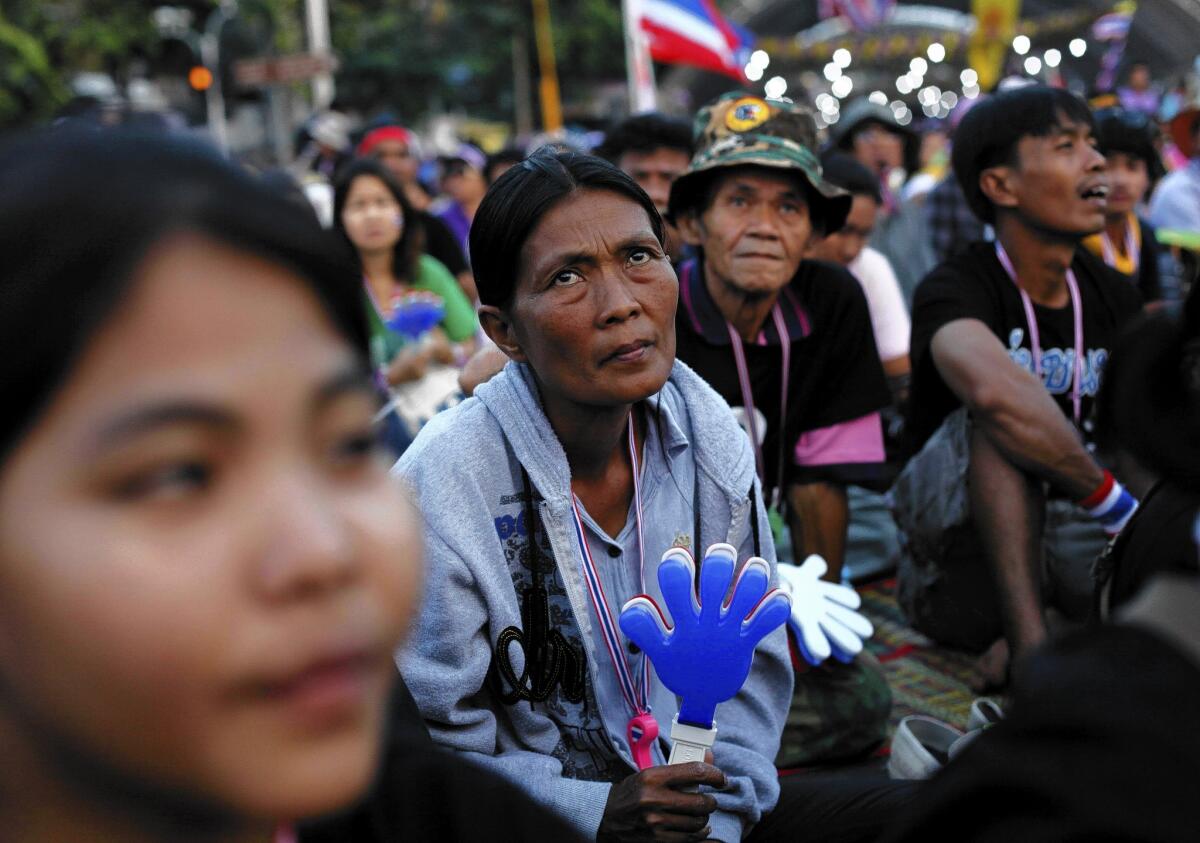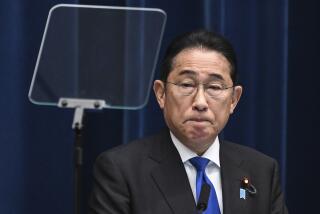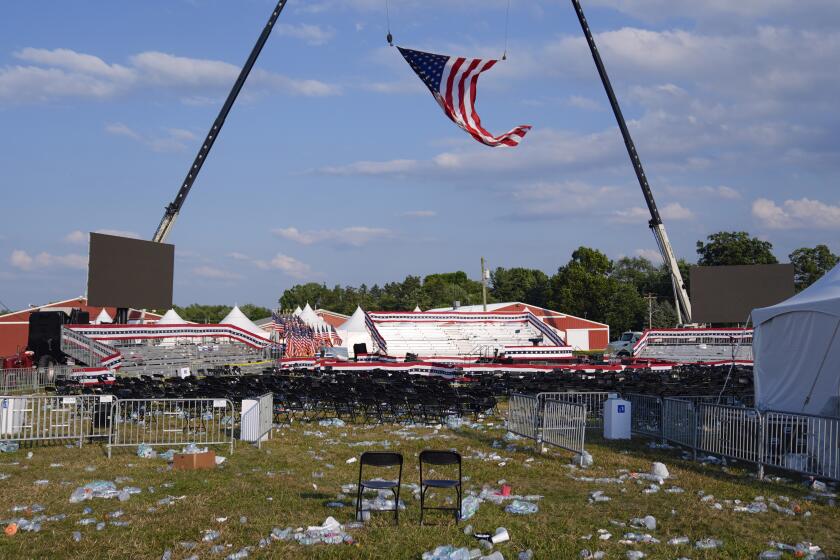Thai prime minister asks monarchy to dissolve parliament

NEW DELHI — In the latest twist of Thailand’s political crisis, beleaguered Prime Minister Yingluck Shinawatra said Monday that she had petitioned the monarchy to dissolve parliament and hold new elections as a fresh wave of protesters descended on her offices and called on her to quit.
Yingluck’s move came in response to the main opposition Democrat Party, which raised the stakes by resigning from parliament en masse Sunday after several days of relative calm in the capital, Bangkok. It contends the government is illegitimate.
“The government doesn’t want the country and the Thai people to suffer more losses,” Yingluck said in a speech aired on state television. “Returning power to voters is in line with the parliamentary democracy. We want all of you to see the importance of the election.”
She didn’t immediately set a date, nor was it clear whether her move would resolve or ultimately deepen the insecurity that has plagued the constitutional monarchy in recent weeks.
Street protesters aligned with the Democrat Party have rejected offers to solve the impasse through the ballot box. Instead, they’ve called for a nonelected “people’s council” to replace parliament, a possible indication they lack the votes. The party hasn’t won a Thai election since 1992.
“The solution to our current problems needs to start with the showing of responsibility,” Democrat leader and former Premier Abhisit Vejjajiva told reporters in announcing the mass resignations. “The prime minister has never showed any responsibility or conscience.”
The political crisis was sparked last month when Shinawatra’s government attempted to pass a law that would have granted amnesty to her brother, telecommunications tycoon and former Premier Thaksin Shinawatra. Thaksin was convicted of corruption in 2008 and has been in self-imposed exile.
The bill failed to pass the Senate. But the initiative upset an uneasy balance between Thaksin supporters and opponents. Protests since then have resulted in at least five deaths and 289 injuries in and around official buildings as antigovernment demonstrators seek to grind Yingluck’s administration to a halt. The protesters say Yingluck, 46, is a puppet of her brother, whom they accuse of buying her 2011 election.
Yingluck, whose Pheu Thai Party won decisively at the polls, says she will remain interim prime minister until the elections.
“At this stage, when there are many people opposed to the government from many groups, the best way is to give back the power to the Thai people and hold an election,” she said. “The Thai people will decide.”
The protests are led by Suthep Thaugsuban, a former deputy prime minister who has rejected negotiations with Yingluck’s government. He has also called for a final push Monday to overthrow the government. Foreign governments have issued advisories to their citizens to avoid protest areas, tourist bookings have been canceled and more than 60 schools in Bangkok have closed as a precaution.
Demonstrators were converging on Government House, the seat of Yingluck’s power, from several directions. If the protests fail, Suthep has vowed to turn himself in to police, who have an arrest warrant for him.
The latest planned show of strength follows a “victory day” a week ago. After it failed, demonstrators took a break to honor the king’s 86th birthday Thursday.
The 153 Democrat lawmakers hold fewer than a third of the 500 seats in the lower house of parliament. Yingluck’s Pheu Thai Party holds a sizable majority, but has faced more than a month of street actions, with demonstrators sometimes numbering in the tens of thousands.
This crisis and years of political turmoil that preceded it reflect deep divisions in society, analysts say. Many rural and working-class Thais resent that they haven’t shared in the nation’s prosperity. Wealthier members of the establishment, who are broadly aligned with the army and monarchy, favor the status quo.
Thaksin, who served as prime minister from 2001 until 2006, when he was ousted in an army coup, ostensibly tried to enact reforms designed to make the system more inclusive. But critics say his populist policies further polarized society.
The protests are the largest and deadliest in Bangkok since 2010, when dozens of people were killed in a military crackdown against pro-Thaksin supporters.
More to Read
Sign up for Essential California
The most important California stories and recommendations in your inbox every morning.
You may occasionally receive promotional content from the Los Angeles Times.









